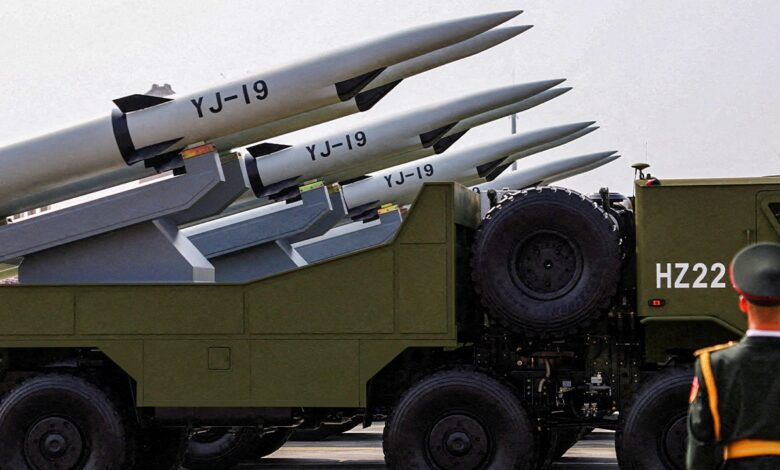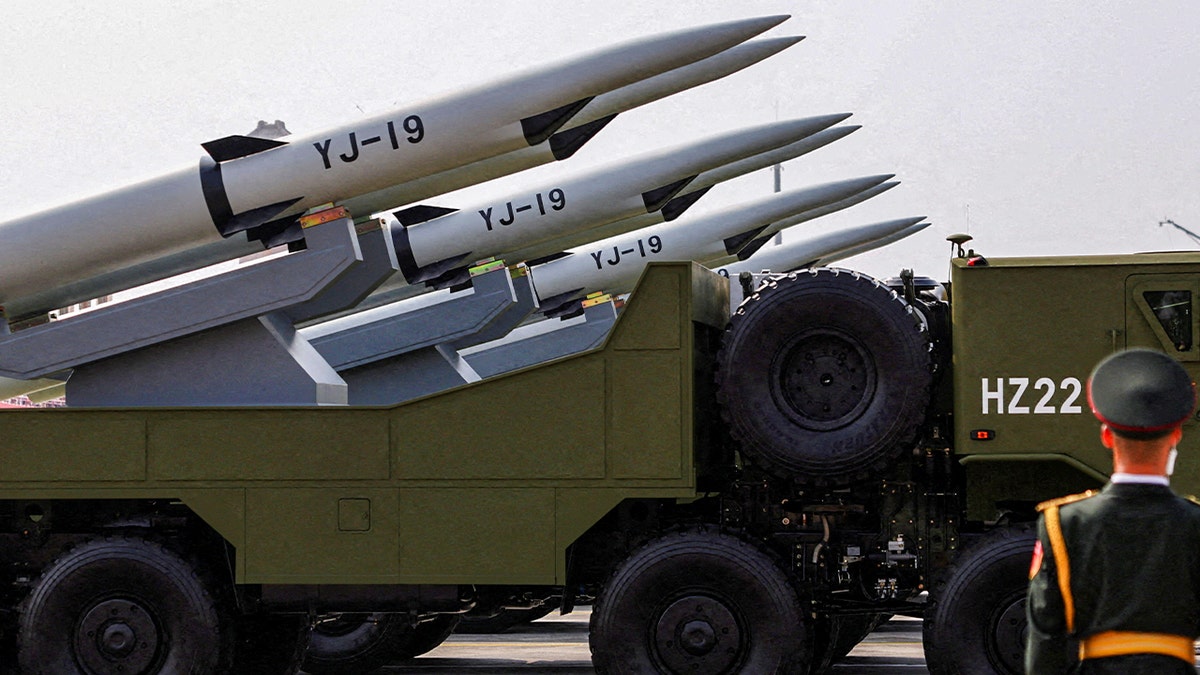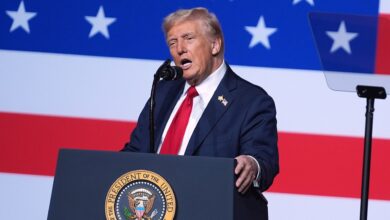Chinese military reaches ‘war footing’ with nuclear development, report warns

NEWYou can now listen to Fox News articles!
China’s military buildup has reached what a new congressional report calls a “war footing,” with hundreds of new missile silos and growing nuclear capabilities that could erode America’s long-standing deterrence advantage in the Indo-Pacific.
China has built about 350 new intercontinental missile silos and increased its stockpile of nuclear warheads by 20% over the past year, part of a broad military expansion that the U.S.-China Economic and Security Review Commission warns could strain U.S. preparedness to counter Chinese aggression.
The commission’s 2025 annual report to Congress says Beijing’s rapid nuclear development, combined with new artificial intelligence-based warfare systems, is transforming the People’s Liberation Army into a force “capable of fighting and winning a war against the United States” — even without matching America’s nuclear numbers.
According to the report, China has unveiled an AI-powered electronic warfare system capable of detecting and suppressing US radar signals as far away as Guam, the Marshall Islands and Alaska, and is currently deploying 6G-based platforms in its armed forces.
HIGH STAKES ON THE HIGH SEAS AS THE US AND CHINA TEST THE LIMITS OF MILITARY POWER

China displays YJ-19 hypersonic anti-ship missiles during a military parade marking the 80th anniversary of the end of World War II, in Beijing, September 3, 2025. (Tingshu Wang/Reuters)
The report said China unveiled a new 6G-based electronic warfare platform in mid-2025, capable of coordinating radar jamming and signal interception over long distances. The system would use high-speed data links and artificial intelligence to synchronize attacks against U.S. and allied radar networks – a preview of what Beijing calls “smart warfare.”
At a military parade in Beijing in September, China displayed for the first time a complete nuclear triad: missiles that can be launched from land, air and sea.
The commission warns that these advances, coupled with China’s political repression and economic influence, could allow Beijing to act “quickly and decisively in a crisis,” reducing the time the United States and its allies have to respond to aggression.
China’s energy siege on Taiwan could cripple our supply chains, report warns

A Jin-class Type 094A nuclear-powered missile submarine sails during a Chinese Navy military demonstration in the South China Sea. (Stringer/Reuters)
The committee is urging Congress to require the Pentagon to conduct a comprehensive audit of U.S. preparedness to defend Taiwan, warning that Washington may no longer meet its legal obligations under the Taiwan Relations Act. The report calls for a classified and unclassified assessment of whether U.S. forces could “resist any use of force or coercion” from China — even in a scenario where the United States also faces simultaneous aggression from Russia, Iran or North Korea.
Read the report below. Application users: Click here
A war against Taiwan, the commission warns, could wipe out up to 10% of global GDP – a shock comparable to the 2008 financial crisis – and bring a “cataclysmic” risk of nuclear escalation and wider conflict in the Indo-Pacific.
China now has around 600 nuclear warheads. The Pentagon has estimated that China aims to have 1,000 by 2030.
The report further warns that China’s economic coercion is worsening the threat, highlighting Beijing’s dominance in fundamental semiconductors, rare earth minerals and printed circuit boards. He says these dependencies could leave the United States “dependent on its rival for the backbone of its modern economy and military.”
CLICK HERE TO DOWNLOAD THE FOX NEWS APP
Among the 28 recommendations, the commission calls on Congress to ban Chinese-made components on U.S. power grids, create a unified economic governance agency to enforce export controls and reaffirm diplomatic support for Taiwan — including its partnership with the Vatican, one of Taiwan’s few remaining formal allies that Beijing has sought to isolate through church diplomacy.
“China’s rapid military and economic mobilization is shortening U.S. warning times,” the report concludes, warning that without a coordinated response, America’s deterrence posture “risks being insufficient” in the face of Beijing’s growing capabilities.



